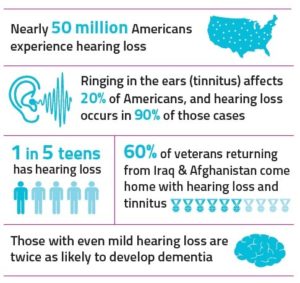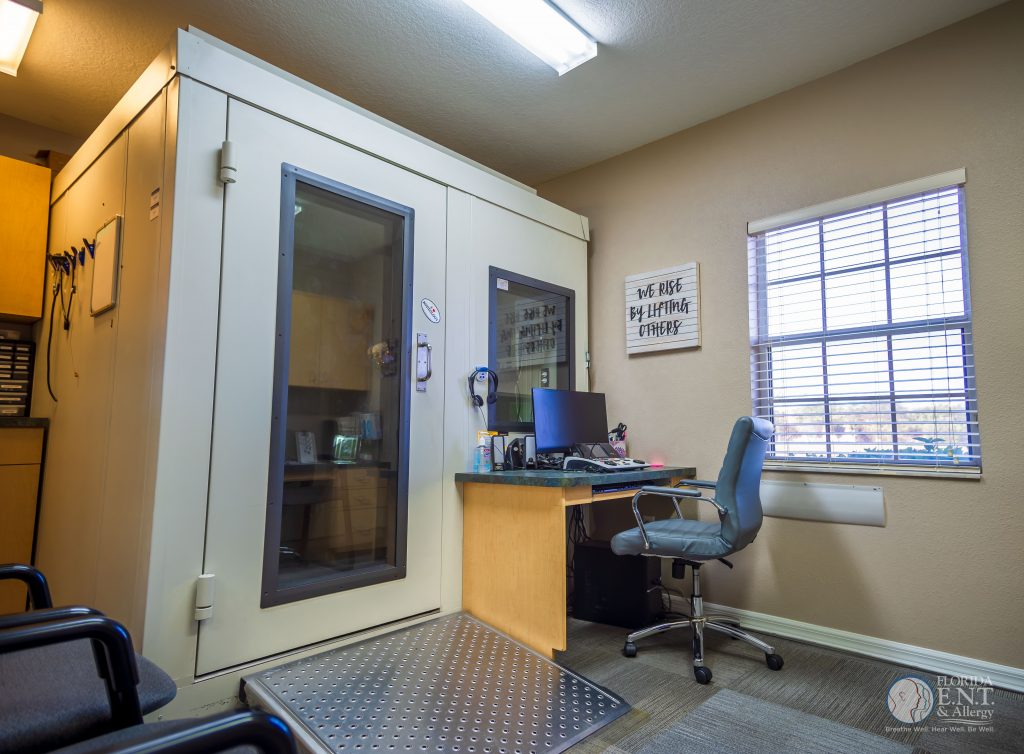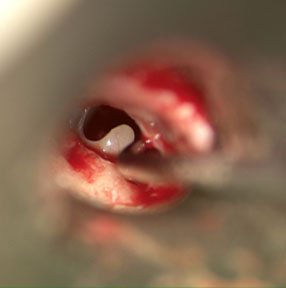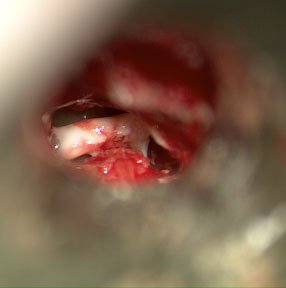Hearing loss. One of the most common health issues in the world is also one of the most treatable.
48 million Americans—or nearly one in five, age 12 and older—experience hearing loss severe enough to hinder communication. If you think you or someone you know has hearing loss, the next step is an easy one – confirm it by seeing a hearing aid professional.
 Did you know hearing loss treatment is shown to improve communication, earning power, intimacy and connections in family relationships, emotional stability, physical health and ease of communication? 9 out of 10 hearing aid users report improvements in their quality of life!
Did you know hearing loss treatment is shown to improve communication, earning power, intimacy and connections in family relationships, emotional stability, physical health and ease of communication? 9 out of 10 hearing aid users report improvements in their quality of life!
Like computers, smartphones and most other high-tech devices, hearing aids have advanced significantly in the past several years. Thanks to more detailed research, faster processing speeds, new features and smarter designs, today’s hearing aids are definitely not your father’s hearing aids. Which is why there is no reason to “just put up” with hearing loss any longer.
The physicians and audiologists at Florida E. N. T. & Allergy have the experience and technology needed to precisely diagnose and measure your degree of hearing loss. If you do have hearing loss that can be helped with hearing aids, our experts will guide you to the best hearing aid choices for your lifestyle and your budget.
Causes of Hearing Loss
- Chronic exposure to loud noises, such as loud music or machinery
- Wax buildup in one or both ears
- Family history
- Fluid buildup due to ear infection
- Foreign object stuck in the ear canal
- Ototoxic medication
- Perforation of the eardrum from illness or injury
- Damage to the tiny bones, or ossicles, of the ear
Types of Hearing Loss
Conductive
Results from a structural abnormality or blockage of the outer or middle ear.
Sensorineural
Results from damage to the inner ear or to the auditory nerve.
Mixed Hearing Loss
Result of both neural and conductive loss affecting both the outer or middle and the inner ear.
Hidden Hearing Loss
Hidden hearing loss (HHL) is characterized by an audiogram that reflects normal hearing sensitivity across all frequency ranges but speech-in-noise tests reveal a deficit. In the case of HHL, the stereocilia are healthy but auditory nerve fibers are damaged, resulting in a compromised connection between the ears and the brain. Patients will report difficulty understanding others. Learn More about Hidden Hearing Loss
Symptoms of Hearing Loss
While hearing loss may affect social interaction and other aspects of daily life, people are often unaware that they have a loss of hearing until others point it out to them. Common signs and symptoms of hearing loss may include:
- Speech is perceived to be muffled
- Inability to understand or decipher conversation
- Sensation that one or both ears are plugged
- Tinnitus, or ringing in the ears
- Increased volume on radio or television
Diagnosis of Hearing Loss
Hearing loss is diagnosed through a physical examination and various hearing tests may be performed. Tuning fork tests can help to diagnose whether the vibrating parts of the middle ear, including the eardrum, are working properly and whether there is damage to the sensors or nerves of the inner ear. Audiometer tests are used to determine the limits of the individual’s hearing.
 Hearing loss can be caused by damage to the inner ear hearing cells, but it can also be caused by sound waves not being properly transmitted into the inner ear. When due to the latter, it is called a conductive hearing loss. It can involve damage of the ear bones, scarring or even fixation of the ear bones. This type of hearing loss is frequently overcome with powerful hearing aids, but many patients are also candidates for surgeries that can allow sound waves to be appropriately transmitted to the inner ear.
Hearing loss can be caused by damage to the inner ear hearing cells, but it can also be caused by sound waves not being properly transmitted into the inner ear. When due to the latter, it is called a conductive hearing loss. It can involve damage of the ear bones, scarring or even fixation of the ear bones. This type of hearing loss is frequently overcome with powerful hearing aids, but many patients are also candidates for surgeries that can allow sound waves to be appropriately transmitted to the inner ear.
Surgical Hearing Loss Treatments
Surgical Repair of Ear Bones
Sometimes the bones of the ear can be damaged or become fixed. This damage can be inherited or due to infection or trauma. Surgery to repair this damage consists mainly of stapedectomy and ossiculoplasty. A stapedectomy involves removing a fixed stapes bone (the stirrups hearing bone) and replacing it with a prosthesis. Ossiculoplasty involves repairing or rebuilding the other two hearing bones (the hammer and the anvil).

The anvil bone was damaged and no longer attached to the stirrups bone.

A special type of bone cement was used to re-establish a connection between the two bones.
Bone Anchored Hearing Aid
Bone anchored hearing aids are special types of surgically implanted hearing aids that send sound waves to the inner ear by vibrating the bone behind the ear. A special processor connects with the implant, which is hidden under the skin, and can help to restore hearing when it would otherwise not be possible to correct. These can be used in patients who are deaf in one ear or who are unable to use traditional hearing aids. One such system we offer is call the Baha Implant System and is described below.
Hearing with the Cochlear™ Baha® Implant System
Your Connection to a Lifetime of Better Hearing
The Baha® Bone Conduction System can be a natural pathway to better hearing if you are living with single-sided deafness, conductive or mixed hearing loss. While most hearing comes from sound waves traveling through the air, you also hear from vibrations that pass through the bones in your head. The Baha 5 System is the first bone conduction system to offer three head-worn sound processors, each one designed to meet a different level of hearing loss. From the smallest to the most powerful, you’ll have peace of mind knowing that Cochlear offers smart choices for a lifetime of better hearing.
Cochlear Implants
Cochlear implantation is a special procedure where an electrode is inserted into the inner ear hearing organ to stimulate the nerve of hearing. This device will give patients access to speech and help ease listening effort.
If you are straining to hear even when using powerful hearing aids and find that you are unable to understand what is being said, a cochlear implant may be the solution for you.
Research demonstrates that cochlear implants help improve:

Advanced Bionics Cochlear Implants & Hearing Technology

Advanced Bionics provides a comprehensive range of products designed to meet your needs and your lifestyle. Our cochlear implant system (CI) offers more ways to hear than any other CI. And every aspect of our CI has been optimized for clarity, comfort, ease of use, and reliability—allowing you to hear your best.

